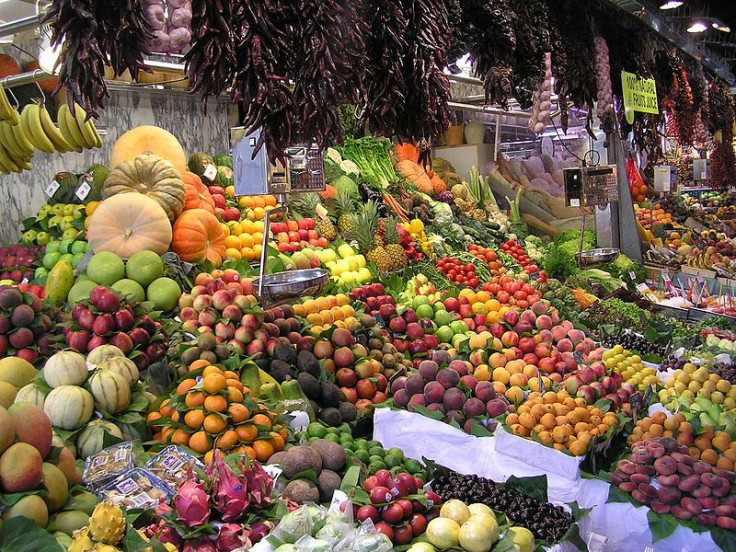Fruit-Rich Diet May Protect Against Aneurysms: How Many Fruit Servings Should You Have?

You may recall your mother always telling you to eat your fruits and vegetables at the dinner table, and you may have found yourself asking why. The reason is fruits and vegetables are heart-healthy, cancer-fighting foods that promote good health and longevity. According to the Harvard School of Public Health, vegetables and fruits are a key factor in a good diet.
The super foods found in various fruit groups not only prevent and protect you from chronic diseases, but also reduce your risk of abdominal aortic aneurysms (AAA). AAA occurs in five to seven percent of people aged 60 and older, with men being four times more likely to have the condition than women, says Johns Hopkins Medicine. The uncommon but deadly condition appears when there is an abnormal enlargement of the blood vessel in the lower part of the aorta, the heart’s major artery. The aneurysms progressively grow throughout many years, but if a person has a damaged AAA, this can cause life-threatening bleeding, says Mayo Clinic. Treatment for AAA depends on the size of the aneurysm; if doctors consider the aneurysm small (1.6 inches, or 4 centimeters) or medium (1.6 and 2.1 inches, or 4 and 5.3 centimeters), they will suggest a watch-and-wait approach because surgery is too risky.
Swedish researchers have now found that a fruit-heavy diet can help to prevent AAA and reduce the risk of a ruptured AAA. In the study published in the journal Circulation, researchers looked at data from more than 80,000 people between the ages of 46 and 84 in Sweden, following the participants for 13 years. The study divided the Swedish men and women into four groups based on how many fruits and vegetables they consumed per day. The researchers found that only 1,100 participants suffered from AAA, including 222 who had damaged AAA, with men accounting for more than 80 percent of AAA cases.
The participants who ate more than two servings of fruit per day were 25 percent less likely to be diagnosed with AAA and 43 percent less likely to have one rupture, compared to those who ate less than one serving of fruit. The participants who consumed just the recommended two servings of fruit a day lowered their risk of AAA by 31 percent and their risk of AAA rupture by 39 percent, compared to those who did not consume any fruit.
“A high consumption of fruits may help to prevent many vascular diseases, and our study suggests that a lower risk of abdominal aortic aneurysm will be among the benefits," said Dr. Otto Stackelberg, lead author of the study and doctoral researcher at the Institute of Environmental Medicine, in a press release.
To maximize the health benefits of fruits, the American Heart Association recommends nine servings, or four-and-a-half cups, of fruits and vegetable daily.
To find out the nine healthiest fruits that you can eat, click here.



























